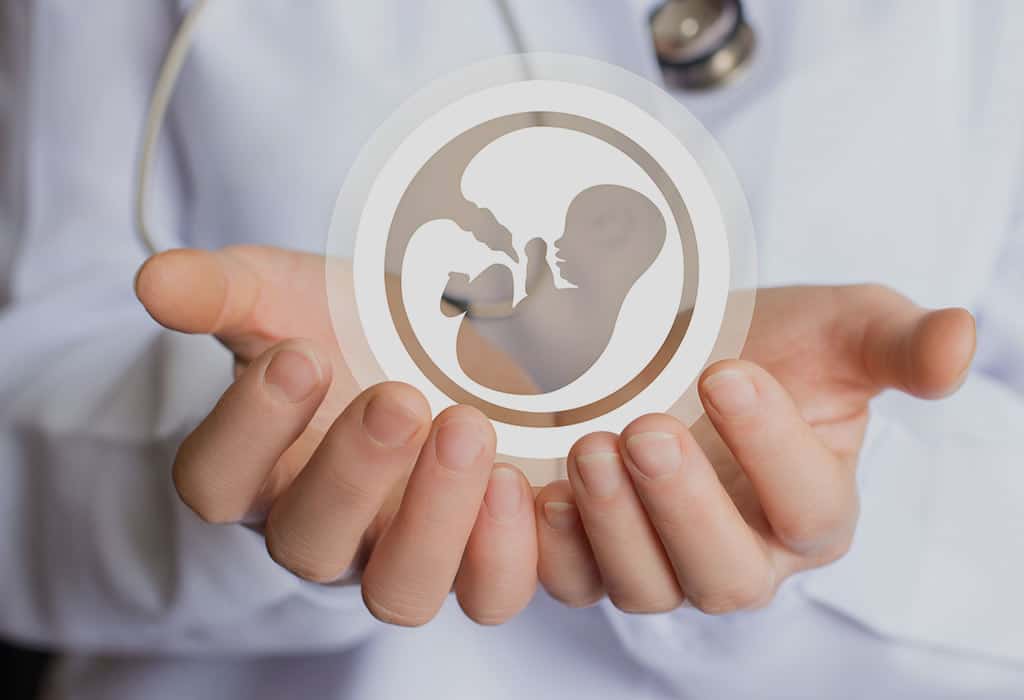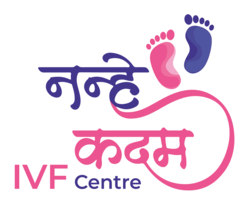ICSI

Intracytoplasmic Sperm Injection (ICSI) Treatment in Haryana
Intracytoplasmic Sperm Injection i.e. ICSI treatment in Haryana is an advanced fertility treatment technique used in assisted reproductive technology (ART) to address male infertility issues. It is an extension of the in vitro fertilization (IVF) process and is specifically designed to overcome challenges related to sperm quality, quantity, and motility.
During ICSI Treatment, a single sperm is directly injected into the cytoplasm of a mature egg using a specialized microinjection needle. This precise and delicate procedure is performed under a high-powered microscope by skilled embryologists. By manually introducing the sperm into the egg, ICSI bypasses natural barriers that might hinder fertilization, such as poor sperm mobility or morphology. ICSI has revolutionized the treatment of male infertility and has offered new hope to couples struggling to conceive due to sperm-related challenges.
Here is the procedure of the ICSI treatment in Haryana, India:
- Ovarian Stimulation: Similar to in vitro fertilization (IVF), the first step involves ovarian stimulation. The fertility medications help women to produce multiple mature eggs. Monitoring through ultrasounds and hormone tests ensures optimal timing for egg retrieval.
- Egg Retrieval: This involves using a thin needle, guided by ultrasound, to aspirate the eggs from the woman's ovaries.
- Sperm Collection: On the same day as egg retrieval, a semen sample is collected from the male partner or a sperm donor. The sperm sample is processed in the laboratory to isolate the most viable and motile sperm for injection.
- Microinjection: In the microinjection step, a single sperm is selected and carefully injected into the cytoplasm of a mature egg using a specialized microinjection needle. This step requires a high level of skill and precision and is performed under a powerful microscope by embryologists.
- Fertilization and Embryo Development: After the microinjection, the eggs are observed for signs of fertilization. Over the next few days, the fertilized eggs develop into embryos under controlled laboratory conditions. The embryologists monitor the embryos' growth and select the most viable ones for transfer.
- Embryo Transfer: Once the embryos have reached a certain stage of development (usually around 3 to 5 days), one or more healthy embryos are selected for transfer. The developed embryos are then transferred into the woman's uterus using a thin catheter. This is a relatively painless procedure and doesn't require anaesthesia.
- Luteal Phase Support: After embryo transfer, the woman might receive hormonal support, such as progesterone supplementation, to create a favourable environment for embryo implantation in the uterine lining.
- Pregnancy Test: About two weeks after embryo transfer, a blood test is conducted to determine whether pregnancy has occurred. If successful, the woman will continue to receive support and monitoring throughout the early stages of pregnancy.
ICSI-IVF (Intracytoplasmic Sperm Injection combined with In Vitro Fertilization) is recommended for couples facing certain fertility challenges, particularly those related to male infertility. It involves combining the ICSI technique with the standard IVF procedure to increase the chances of successful fertilization and pregnancy. ICSI-IVF is typically recommended for the following scenarios:
- Severe Male Infertility: ICSI-IVF is primarily suggested when the male partner has significant infertility factors, such as:
- Very low sperm count (oligospermia)
- Poor sperm motility (asthenospermia)
- Abnormal sperm morphology (teratospermia)
- Presence of anti-sperm antibodies
- Prior unsuccessful attempts with conventional IVF
- Previous Fertilization Failures: If previous attempts at IVF have resulted in poor or no fertilization despite the use of conventional methods, ICSI-IVF can be considered as a solution. This is particularly relevant if the male partner's sperm quality is compromised.
- Unexplained Fertilization Issues: In some cases, couples may experience unexplained fertilization failure in previous IVF cycles. ICSI-IVF can help bypass any unidentified barriers to fertilization by directly injecting sperm into the egg.
- Sperm Retrieval Challenges: ICSI-IVF can be employed when there are challenges in retrieving viable sperm through ejaculation, such as in cases of obstructive or non-obstructive azoospermia (absence of sperm in the semen).
- Genetic Concerns: If the male partner carries certain genetic disorders that could be passed on to offspring, preimplantation genetic testing (PGT) can be combined with ICSI-IVF to screen embryos for these genetic abnormalities before transfer.
It's important to note that ICSI-IVF is not always the first-line treatment choice. A thorough evaluation by a fertility specialist is crucial to determine the most suitable treatment approach based on the specific circumstances of the couple. Both partners' medical histories, fertility test results, and overall health are taken into consideration before recommending ICSI-IVF or any other fertility treatment. Additionally, advances in fertility techniques continue to refine treatment options, providing hope for couples facing diverse fertility challenges.
Intracytoplasmic Sperm Injection (ICSI) is generally considered safe and has helped numerous couples overcome male infertility challenges to achieve successful pregnancies. However, like any medical procedure, ICSI does carry some potential risks and considerations. It's important for individuals considering ICSI treatment in Haryana to be aware of these risks and discuss them thoroughly with their healthcare provider. Some potential risks associated with ICSI treatment include:
- Risk of Overstimulation: During the ovarian stimulation phase, fertility medications are used to stimulate the ovaries to produce multiple eggs. In some cases, this can lead to ovarian hyperstimulation syndrome (OHSS), a condition characterized by swollen and painful ovaries, fluid accumulation in the abdomen, and potential complications. Close monitoring and adjustment of medication dosages can help minimize this risk.
- Multiple Pregnancies: ICSI, like other assisted reproductive technologies, can result in multiple embryos implanting in the uterus, leading to the possibility of a multiple pregnancy (twins, triplets, etc.).
- Fertilization Failure: While ICSI treatment in Haryana is designed to address fertilization issues, there is still a possibility of failed fertilization despite the microinjection procedure. Not all eggs injected with sperm will result in successful fertilization and embryo development.
- Embryo Abnormalities: ICSI does not eliminate the risk of embryo abnormalities. Genetic and chromosomal abnormalities can still occur, leading to failed implantation, miscarriage, or the birth of a child with genetic disorders.
- Birth Defects: Some studies have suggested a slightly increased risk of certain birth defects in children conceived through ICSI. However, the absolute risk remains relatively low, and the connection between ICSI and birth defects is not fully understood.
It's important to have an open and detailed discussion with a fertility specialist before undergoing ICSI treatment. Additionally, staying informed, seeking support, and maintaining a healthy lifestyle can contribute to a positive experience throughout the ICSI journey.
ICSI (Intracytoplasmic Sperm Injection) and IVF (In Vitro Fertilization) are both advanced assisted reproductive techniques, but they have distinct differences in terms of their procedures and applications. Here's a comparison of ICSI and IVF:
IVF (In Vitro Fertilization):
- Fertilization Process: In IVF, eggs and sperm are combined in a laboratory dish (in vitro) to allow fertilization to occur naturally. Sperm is typically added to the dish, and fertilization happens as sperm penetrate the egg's outer layer.
- Indications: IVF is used to treat a range of fertility issues, including blocked fallopian tubes, endometriosis, unexplained infertility, ovulation disorders, and male infertility factors with reasonably healthy sperm.
- Procedure: The woman undergoes ovarian stimulation to produce multiple mature eggs, which are then retrieved from the ovaries. The retrieved eggs are mixed with sperm in a laboratory dish for fertilization to occur. After fertilization, resulting embryos are cultured for a few days before one or more healthy embryos are transferred into the woman's uterus.
- Use of Sperm: IVF relies on a higher concentration of healthy sperm, as natural fertilization is the goal. However, if male infertility factors are significant, conventional IVF might not lead to successful fertilization.
ICSI (Intracytoplasmic Sperm Injection):
- Fertilization Process: ICSI is a variation of IVF that addresses severe male infertility factors. Instead of relying on natural fertilization, a single sperm is directly injected into the cytoplasm of a mature egg using a microinjection needle.
- Indications: ICSI treatment is recommended when male infertility factors, such as very low sperm count, poor sperm motility, or abnormal sperm morphology, make natural fertilization unlikely or unsuccessful.
- Procedure: The ICSI process involves the same initial steps as IVF, including ovarian stimulation and egg retrieval. However, during the microinjection step, a skilled embryologist selects a single sperm and injects it into each mature egg to ensure fertilization.
- Use of Sperm: ICSI requires only a small number of viable sperm, as each egg is individually injected with a sperm. This makes it suitable for cases where the quantity and quality of sperm are limited.
In summary, while both ICSI and IVF are techniques used to help couples achieve pregnancy, ICSI is a specialized version of IVF that is specifically designed to address severe male infertility issues. ICSI directly addresses the challenges associated with sperm quality and quantity by introducing a sperm into an egg using microinjection. The choice between ICSI treatment in Haryana and conventional IVF depends on the underlying fertility diagnosis and the specific factors affecting the couple's ability to conceive. A fertility specialist will assess the individual case and recommend the most appropriate treatment approach.
Book Your Free Consultation Now
OTHER TREATMENTS

HSG
If you’re a woman trying to have a baby, you probably know that there are many parts of your body that have to work just right. Your ovaries need to produce an egg every month, called ovulation, your uterus has to be in good shape, and your fallopian tubes have to be open.

Embryology
Embryology is the study of embryo development. This includes the developmental process of a single-cell embryo to a baby. Embryology usually refers to the prenatal development of a foetus.

Cryoperservation
Patients who undergo in vitro fertilisation (IVF) may produce several eggs (oocytes) which, if fertilisation takes place, will be developed into embryos.
